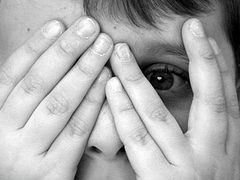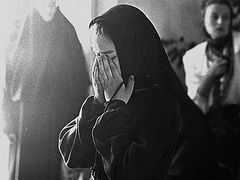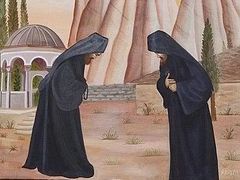 The preeminent apostle Peter in his Epistle to Christians writes: As obedient children, not fashioning yourselves according to the former lusts in your ignorance: But as he which hath called you is holy, so be ye holy in all manner of conversation; Because it is written, Be ye holy; for I am holy (1 Pet. 1:14–16).
The preeminent apostle Peter in his Epistle to Christians writes: As obedient children, not fashioning yourselves according to the former lusts in your ignorance: But as he which hath called you is holy, so be ye holy in all manner of conversation; Because it is written, Be ye holy; for I am holy (1 Pet. 1:14–16).
God demands holiness of life. This holiness first of all consists in chastity, and then in the fulfillment of other commandments of God; and when they are violated, then in sincere and humble repentance. Chastity is twofold—virginal, and conjugal. The ancient Susanna was called chaste in her marriage because she resolved to die rather than to fulfill the evil desire of the lawless judges. And from the Gospel parable of the ten virgins it can be seen that not all the virgins were wise, but five of them were foolish. The latter are called foolish because while observing bodily virginity they did not take care to observe purity of soul, and defiled their minds and hearts with impure thoughts and desires, or were disturbed by thoughts of anger and resentment, or envy and hatred, or were blinded by avarice and from their miserliness were not compassionate towards their neighbor. If some of them apparently refrained from these passions, but were conquered by vainglory and pride, judgment and denigration of their neighbors, they lost through this purity of soul, as it is written: Every one that is proud in heart is an abomination to the Lord (Par. 16:5). What is said of the passions with regard to virgins regards also widows and spouses, as the Lord Himself said to the apostles: And what I say unto you I say unto all (Mk. 13:37).
What is the main means for living a holy life?
The Lord Himself through the same Apostle Peter points to these means, saying, And if ye call on the Father, who without respect of persons judgeth according to every man's work, pass the time of your sojourning here in fear (1 Pet. 1:17). These words show that the main means for living piously and in holiness consist in the fear of God and the fear of the judgment to come and eternal torments. Only with the cooperation of this fear, with God’s help, can there even be the keeping of the commandments, as it is said in the Psalms: Blessed is the man that feareth the Lord; in His commandments shall he greatly delight (Ps. 111:1).
But without fear, even if one should live in heaven, as St. Peter Damascene says, he will fall if he does have fear and is proud. By this did satan, Adam, and many others fall. God’s word prescribe fear of God even to all the saints, as it is said: O fear the Lord, all ye His saints; for there is no want to them that fear Him (Ps. 33:9). Even more does it behoove us, sinners and defective as we are, to have the fear of God, the fear of death, fear of God’s Dread Judgment, eternal torments in hell—softening this fear with the hope of inheriting the Kingdom of Heaven if we will force ourselves as much as possible to repentance and correction. The fear of God and the remembrance of those four last things restrain us from falling into sin—as it is said, Remember the hour of your death, and you will never sin (Sir. 7:39).



